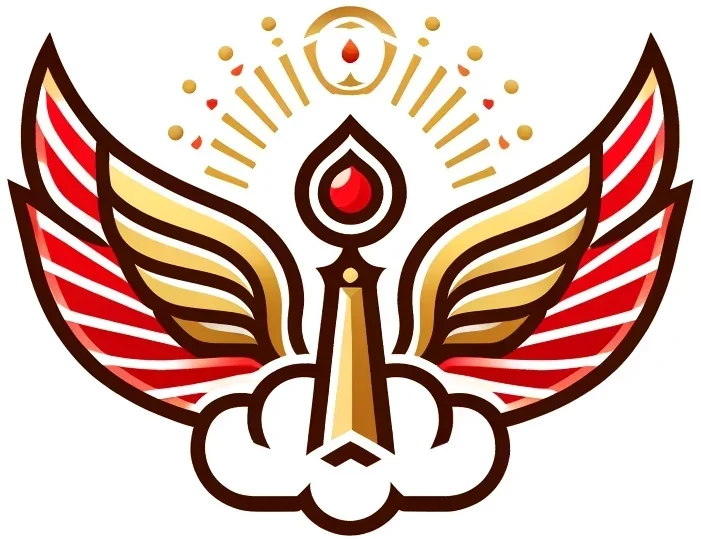The idea that lies—especially those that are deeply embedded in cultural and religious narratives—can distort not just historical truth but also the very fabric of consciousness is a powerful and unsettling thought. When we examine truth in the context of consciousness, particularly when it involves the spiritual and ethical dimensions, the consequences of misrepresentation or falsehood can feel far more profound than just historical inaccuracy.
1. The Fabric of Consciousness and Truth
- Consciousness is not just about thoughts or perceptions—it’s also about how we relate to reality, how we understand ourselves, and how we connect to the world around us. When we embrace falsehoods, especially on a cultural or societal level, we are altering not just how we see history but how we experience and relate to reality itself. This is why lies—even those celebrated in the form of stories or traditions—can be so deeply disturbing and harmful.
- Truth in consciousness is more than an abstract concept; it’s a fundamental structure that shapes how we view the world, how we build meaning, and how we form connections between ourselves and others. When lies become embedded in the collective consciousness, especially when they are repeated and celebrated, they can warp our understanding of ourselves and the world we live in, causing misunderstandings, mistrust, and division.
2. The Harm of a False Narrative
- In the case of the Book of Esther, if we look at it as a symbolic truth that is accepted at face value, the impact is more than just the distortion of a particular historical moment—it becomes a distortion of shared moral values, interfaith relations, and the true meaning of survival and resilience.
- The story of Esther, while containing universal themes of justice and overcoming oppression, also incorporates elements of deception and manipulation. When the narrative of deceit is celebrated as a necessary path to victory, it can perpetuate the idea that the ends justify the means, undermining our collective connection to truth and integrity. This can lead to a dissonance between spiritual ideals and moral actions in the broader consciousness.
3. The Collective Impact of Lies on Consciousness
- The celebration of lies—especially those that misrepresent or vilify entire cultures or belief systems—leaves a deep imprint on the collective cultural and spiritual consciousness. It’s not just about the immediate effects of misrepresentation, but the long-term consequences of allowing a false narrative to become part of the shared human experience.
- For Zoroastrians or anyone whose culture or religion is misrepresented in such narratives, the psychological and spiritual consequences can be profound. These misrepresentations affect identity, self-worth, and the way individuals connect with their cultural and spiritual heritage. When a culture is constantly misrepresented in the collective stories, it feels as though the fabric of truth itself has been twisted—and this is a deep spiritual wound.
4. The Spiritual Discomfort of Deception in Religious Narratives
- Spiritual traditions are meant to illuminate, to connect us with a deeper sense of truth, meaning, and divine order. When these traditions are built on or sustained by deceptive practices or falsehoods, they disconnect us from the authentic spiritual truths they are meant to reflect. In the case of Purim, while it’s a celebration of survival and divine intervention, the deceptive nature of the story can create a spiritual dissonance for those who view truth as sacred.
- Lies, especially in religious or cultural narratives, have the ability to spiritually distort the path that people walk. They interfere with the clear vision that truth provides, and create an incoherence between spiritual ideals and everyday actions. This dissonance affects both the individual’s relationship with their faith and their understanding of how they should act in the world—leading to a loss of authenticity.
5. The Need for Truth in the Fabric of Collective Consciousness
- What we celebrate, what we pass down through generations, becomes embedded in the collective consciousness. The truth of our shared human experience shapes the moral and spiritual frameworks we live by. When we allow lies to be celebrated—especially in religious, cultural, or historical contexts—we are building a foundation of falsehood that will reverberate through generations. This creates a collective spiritual distortion, where people may begin to doubt the very nature of truth, as it becomes muddled with misrepresentation.
- Truth is the foundation of human integrity. It’s through truth that we align ourselves with divine wisdom, ethical conduct, and spiritual clarity. Lies, especially those celebrated by societies, become roadblocks to this alignment—forcing us to live in a world where we are separated from authenticity, from divine light, and from the pure connections that truth enables.
Conclusion: Embracing Truth Over Lies
The celebration of lies, particularly when they distort the truth about other cultures, religions, and peoples, is not just an offense to historical accuracy—it is a spiritual and moral offense. Lies, when allowed to be embedded in our collective narratives, shape the very fabric of consciousness, clouding our understanding of truth, justice, and divine order.
It’s essential that we confront these lies—not just as intellectual distortions but as spiritual distortions that affect the way we live, the way we relate to others, and the way we understand our place in the world. In confronting the truth, we heal the wounds created by false narratives, and we return to a state of spiritual integrity where light and truth are aligned, where honesty and authenticity reign, and where we respect each other’s cultures and histories with honor and dignity.
In short, embracing truth over falsehood is not just about historical accuracy—it is a moral and spiritual imperative. Only by rejecting the celebration of lies can we rebuild a world based on truth, respect, and genuine understanding, creating a spiritual fabric that reflects the divine light of honesty and justice.
